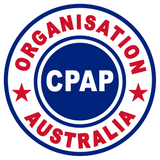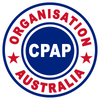Do I have Sleep Apnea or am I just tired?

"I snore, is this a sign that I have sleep apnea?" is one of the most frequently asked questions of sleep physicians. Not always. As is the case with many other facets of medicine, there is a spectrum of condition. On the one hand, there is what is referred to as primary snoring. A snorer may cause their partner's sleep to be disturbed. It has no effect on their own oxygen levels or sleep patterns. Another frequently asked question is, "I snore, I have a deviated nasal septum; if they correct it, would I no longer suffer apnea?" Snoring can occur anywhere from the nose to the trachea. It is simply turbulent flow or soft tissue vibrating somewhere along the upper respiratory tract's passage that produces the snoring sound. Snoring can occur for a variety of reasons, but apnea occurs in the back of the throat, and that is the distinction.
Upper Airway Resistance Syndrome (UARS)
Then there's Upper Airway Resistance Syndrome (UARS), which occurs when patients must work harder to breathe, resulting in sleep apnea. Consequently, they snore, have difficulty breathing, and then wake up; they may not be fully aware that they were having difficulty breathing, which is why they are snoring. However, they awaken briefly enough to disrupt the typical sleep pattern. However, in the mornings, if they have slept eight hours but are still exhausted, that is not always indicative of apnea.
Types of Sleep Apnea
There is a spectrum, which is why we require a sleep study. We have a precise diagnostic for Obstructive Sleep Apnea. If you have Obstructive Sleep Apnea, the upper airway collapses partially or completely during sleep, obstructing airflow and lowering oxygen levels. This can result in sleep apnea. And, over time, can contribute to an increased risk of heart disease, heart failure, and hypertension.
Central Sleep Apnea / Cheyne-Stokes Respiration and Complex Sleep Apnea are two disorders that we observe in patients with a stroke or heart failure history. These are more complicated conditions than simple Obstructive Sleep Apnea. What we most frequently encounter is Obstructive Sleep Apnea. How many patients, then, suffer from Obstructive Sleep Apnea? According to large population studies, telephone surveys, and home tests, around one in five persons in Australia has mild Obstructive Sleep Apnea. One in every fifteen people suffers from moderate to severe sleep apnea.
Sleep Apnea and Age
Sleep apnea typically worsens with age. Heart disease is a substantial risk factor for persons with moderate to severe sleep apnea. Most patients, over 85 percent, go undetected. People tend to believe that this is the way things are and that they are simply fatigued. It is just a natural side effect of growing older and not sleeping well. Additionally, people tend to believe that if they are not sleeping during the day and am not falling asleep while driving or sitting in a chair, cannot have sleep apnea. That is also not true.
Sleep apnea does not necessarily result in daytime tiredness. While severe cases undoubtedly happen, this is not always the case. Obstructive Sleep Apnea and cardiovascular risk factors include an increased prevalence of hypertension, type 2 diabetes, cardiovascular disease, including heart failure, heart attacks, and stroke. It is related with a higher risk of having these disorders if it is not treated. Additionally, it is linked to insulin resistance or prediabetes. It is associated with impaired glucose management in persons who have both sleep apnea and diabetes.

Sleep Apnea and Depression
Regretfully, sleep apnea is also related with clinical depression symptoms. Inadequate sleep, for whatever reason, is detrimental to your mood and health. At UCLA's Norman Cousins Center for Psychoneuroimmunology, researchers examined sleep deprivation and its impacts on the immune system and discovered that sleep deprivation had a major effect on the immune system.
Any source of sleep loss might result in immune system dysfunction and a reduced lifespan. Coronary artery disease is linked to sleep apnea. The majority of persons with coronary artery disease also suffer from sleep apnea. Additionally, they tend to have worse results if they have both.
Sleep Apnea and Heart Problems
Cardiac death can occur when the heart enters an irregular cardiac rhythm, depriving the brain of sufficient perfusion. This occurs primarily at night for persons who suffer sleep apnea. Almost half of all fatal cardiac rhythm events in patients with sleep apnea occur during the early morning hours of 12am to 6am.



Leave a comment